Conclusion
The Biwin Black Opal NV7400 2TB PCIe Gen4 M.2 NVMe SSD is a PCIe Gen4x4 NVME 2.0 SSD based on the MAXIO MAP1602 controller, and Micron B58R TLC 3D NAND flash as a DRAM-less SSD. Black Opal is Biwin’s lineup of gaming-oriented SSDs, and Biwin has SSDs spanning from PCIe Gen3x4 up to PCIe Gen5x4. The Biwin Black Opal NV7400 is Biwin’s current PCIe Gen4 flagship SSD, geared for DIY hardware enthusiasts, gamers, and gaming devices. There are four capacities offered, from 512GB, 1TB, 2TB, and 4TB models.
The Biwin Black Opal NV7400 2TB SSD we reviewed today has a max sequential read speed of up to 7,450MB/s and a max sequential write speed of up to 6,500MB/s. Biwin is known for its endurance ratings, and the Biwin Black Opal NV7400 2TB SSD we reviewed has an endurance rating of 2000 TBW, and all SSDs come with a 5-year warranty. The current listed price for the Biwin Black Opal NV7400 2TB SSD we reviewed is $119.99, though you might find deals with discounts online.
Cooling
The goal of our temperature testing is to push the SSDs as hard as possible by performing a stress test of read and write. We run PerformanceTESTS’s advanced disk benchmark with a 10GB file, set to run each read/write test for 3 iterations, culminating in a 30-minute run. This is not typical usage behavior, but our goal is to find the maximum limits of the cooling. We utilize HWiNFO64 for reporting SSD temperatures. We tested two ways, in the left screenshot, the SSD has no active airflow over the motherboard, as if there was no airflow in a case, no external case fans, though it is an open-air test-bench. On the right screenshot, we have a powerful case fan blowing across the SSD, as if a case fan were in use in the computer, with proper case airflow.
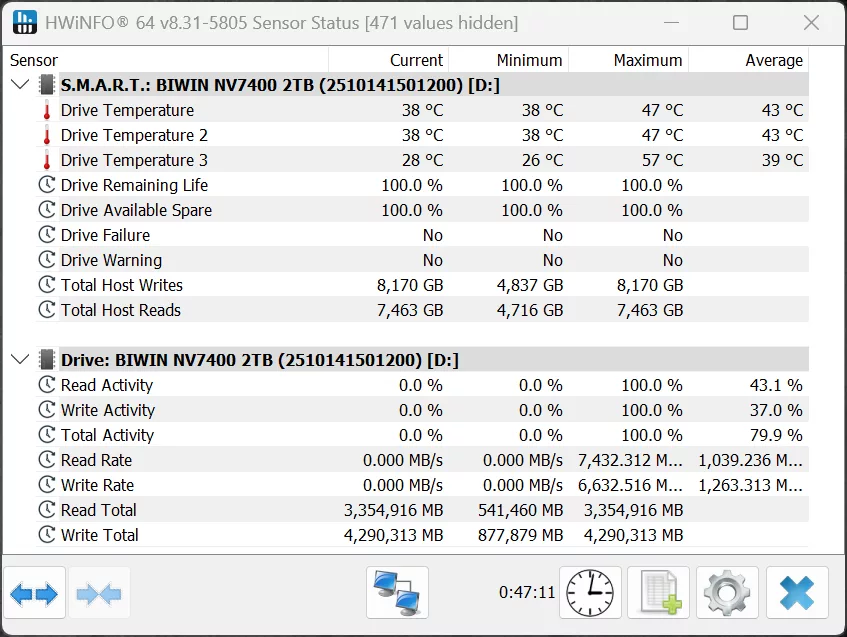
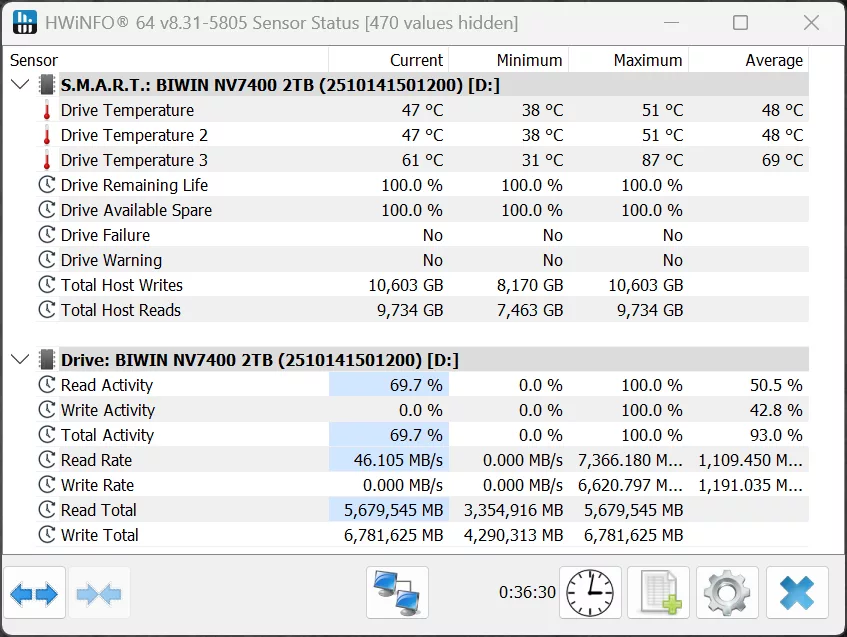
On the left screenshot, we can see that with a case fan installed, the Biwin Black Opal NV7400 2TB SSD only hits up to 57c, and 47c on the NAND or composite temperature. Therefore, with proper case airflow, the graphene thermal pad works here, as long as there is strong airflow across it. However, on the right side, we see that without any airflow or any third-party heatsink, the SSD can climb up to 87c, and 51c on the NAND flash or composite temperature. We do recommend installing your motherboard’s M.2 heatsink with this SSD, and if you don’t have one, a third-party heatsink of any sort will help a lot. Though the SSD will work without one, there could be scenarios with poor cooling that will cause it to heat up quite a bit in extreme usage, which could harm performance and lifespan.
Biwin Intelligence
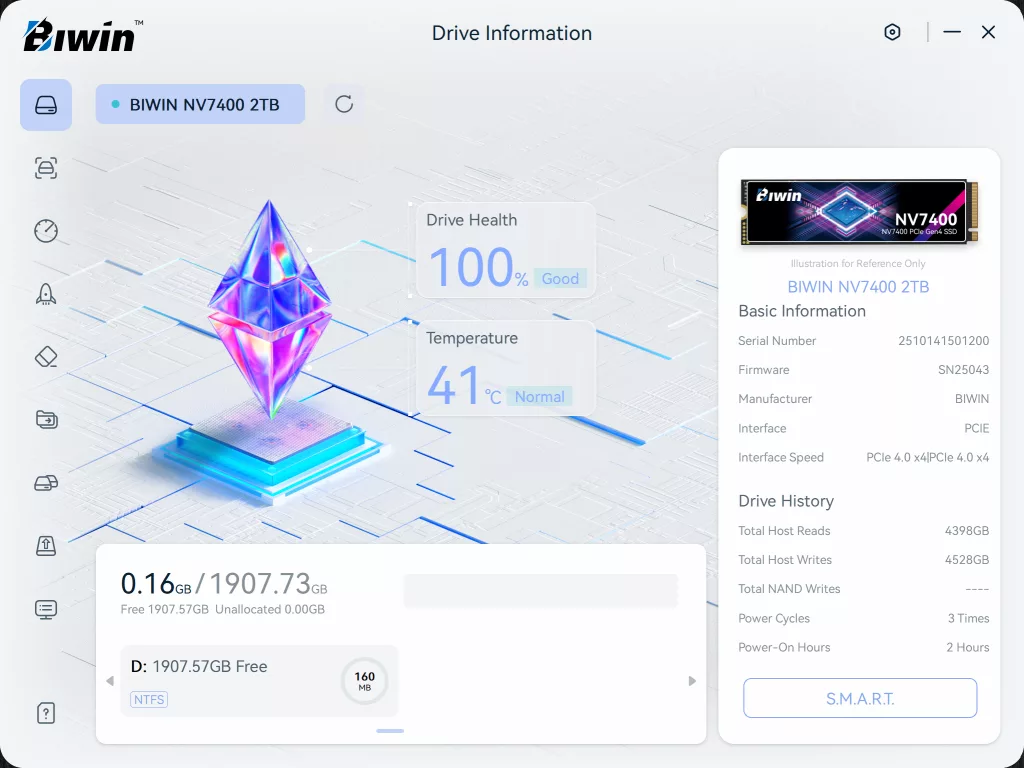
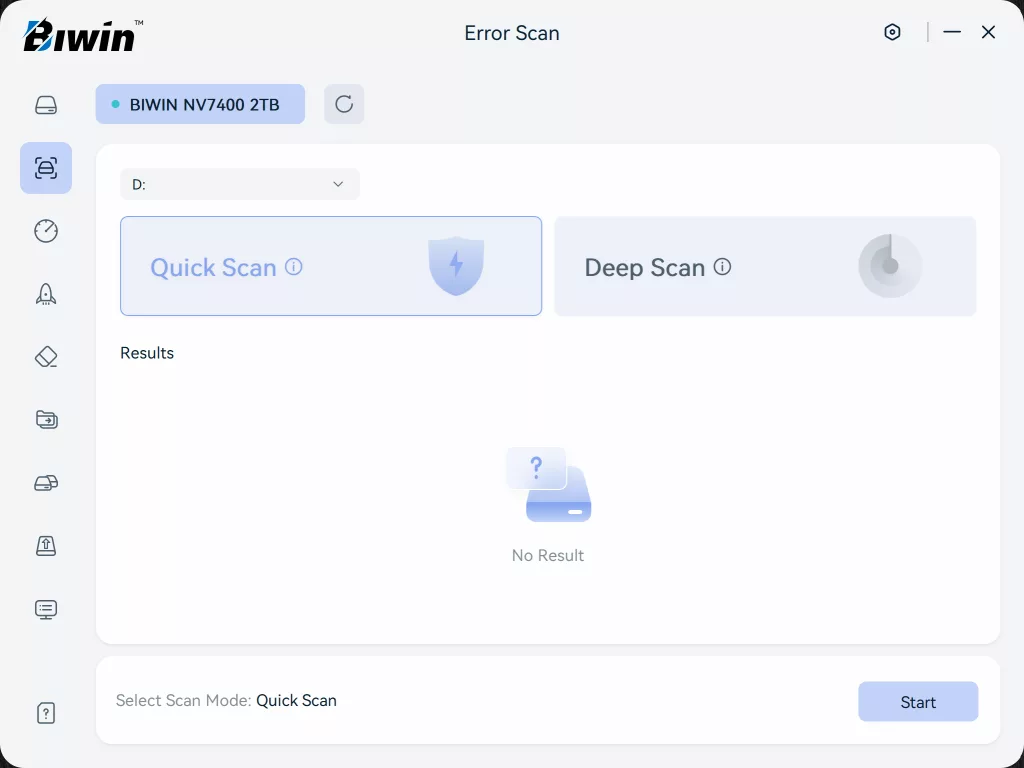
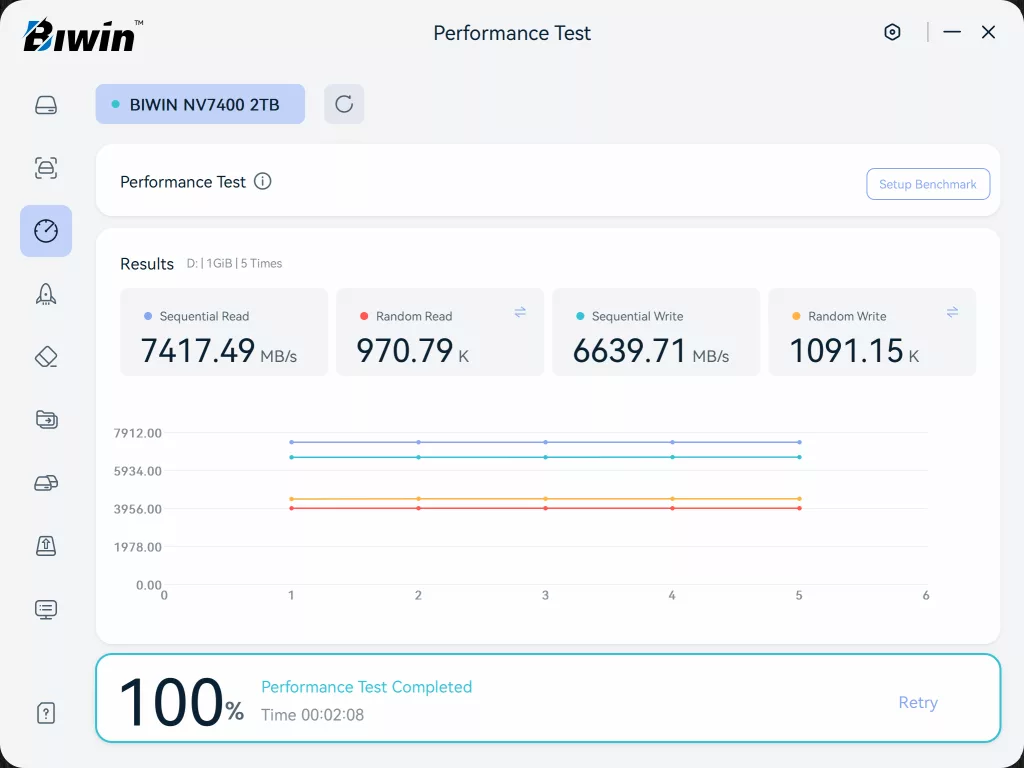
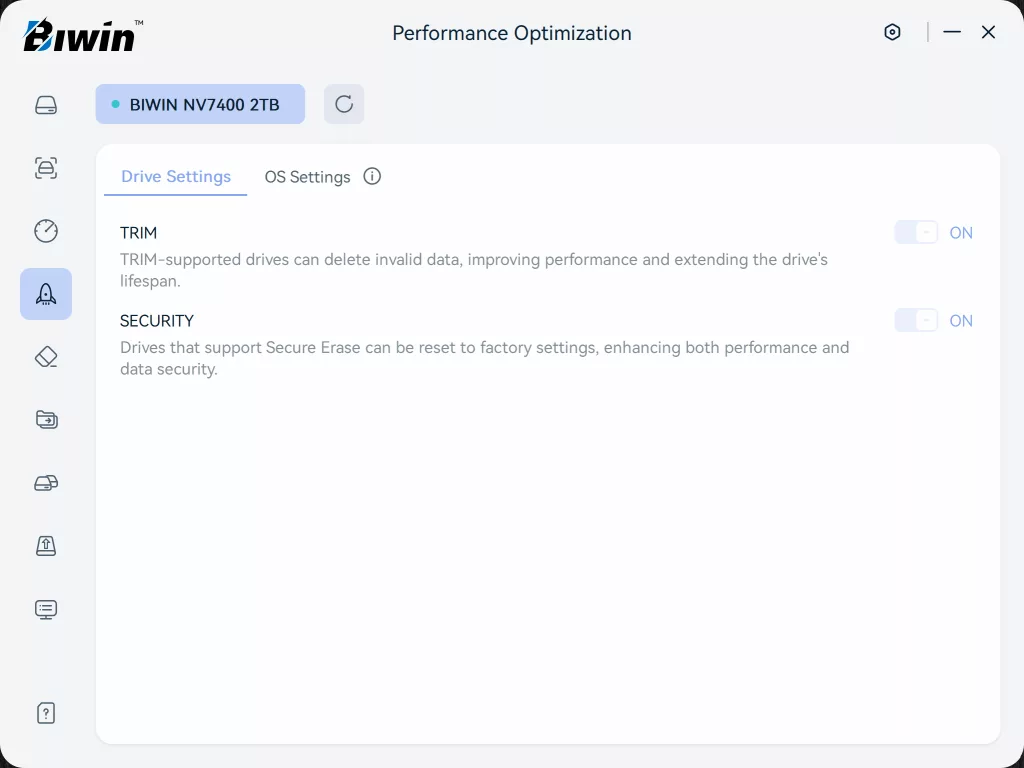
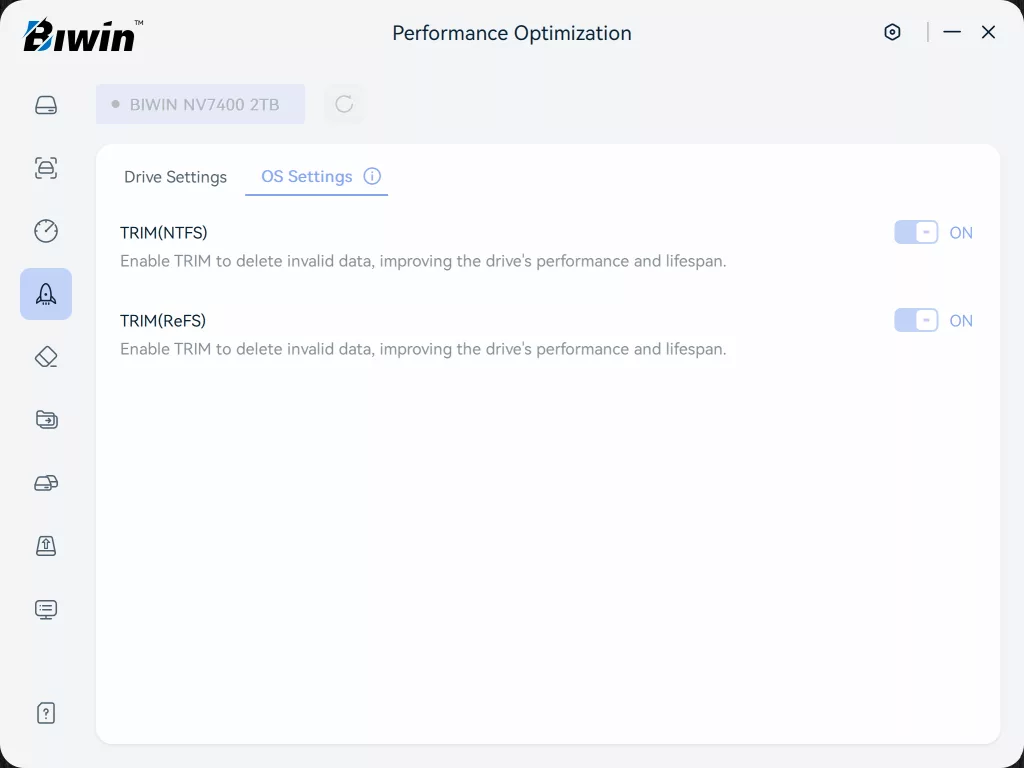
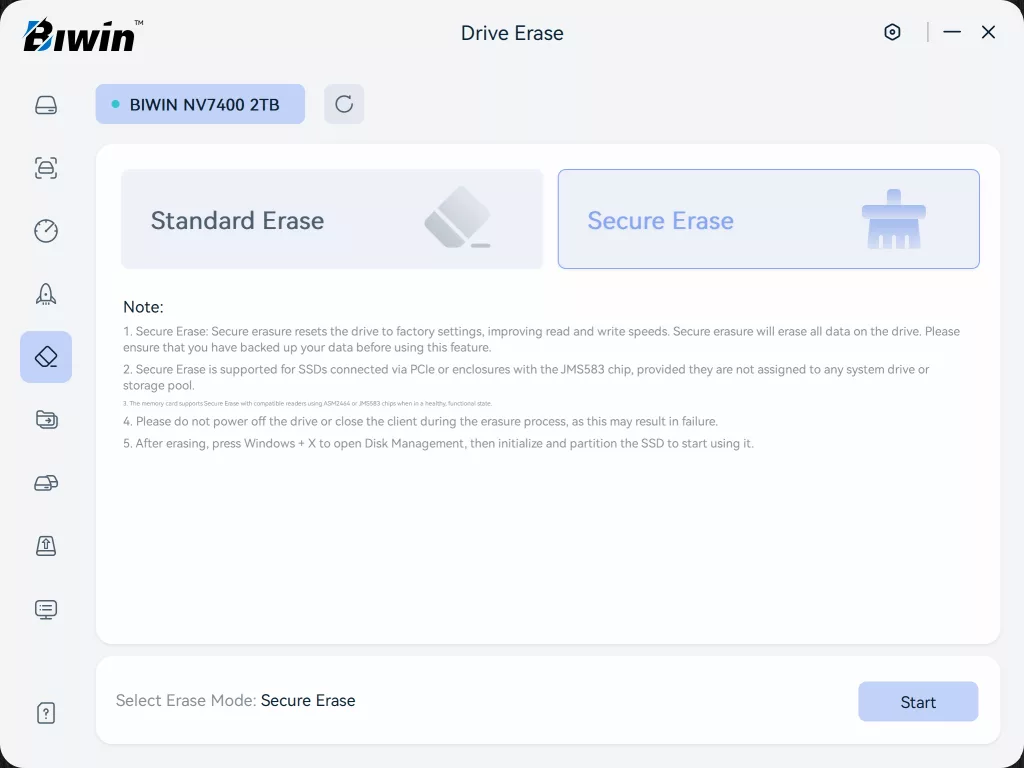
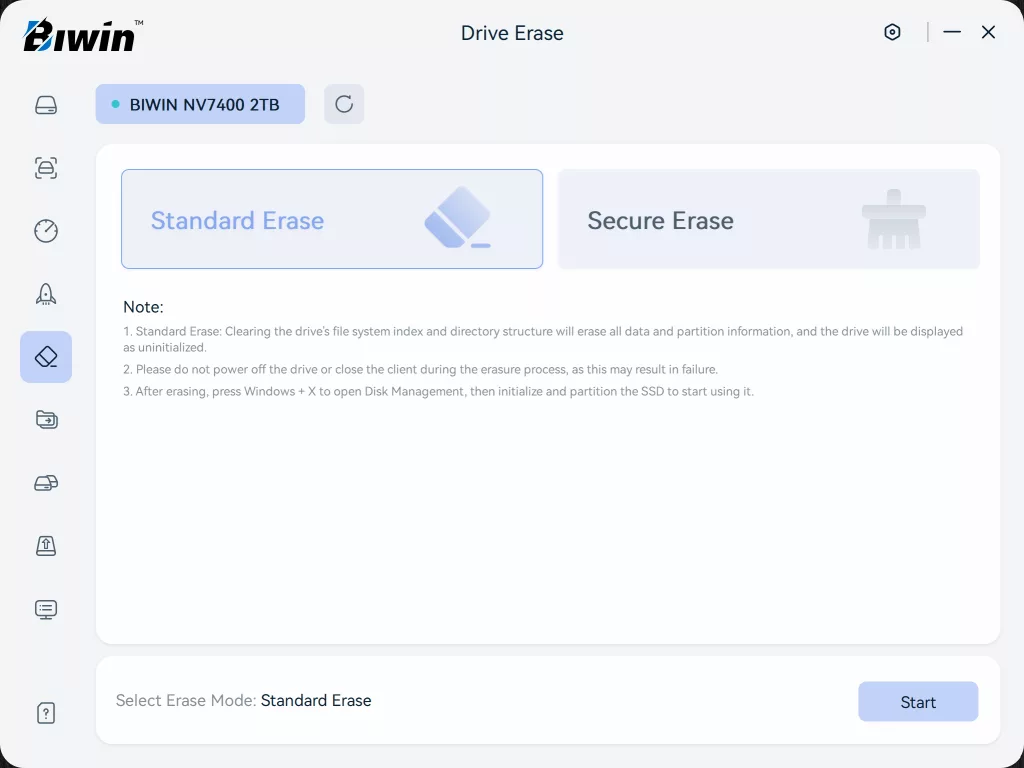
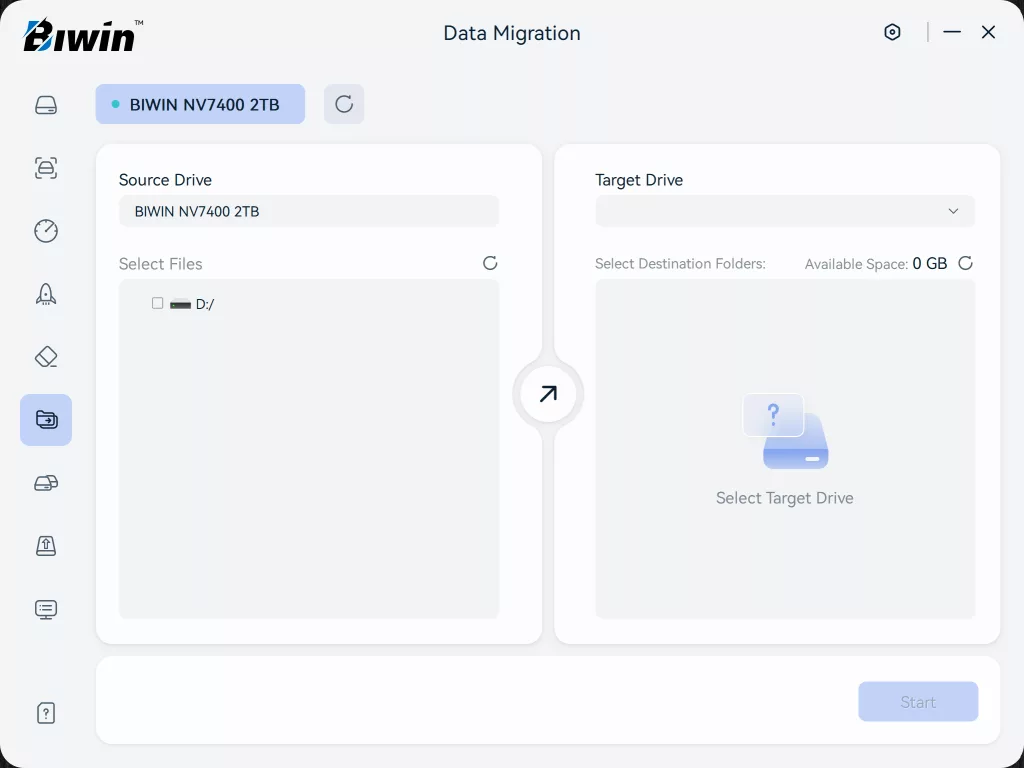
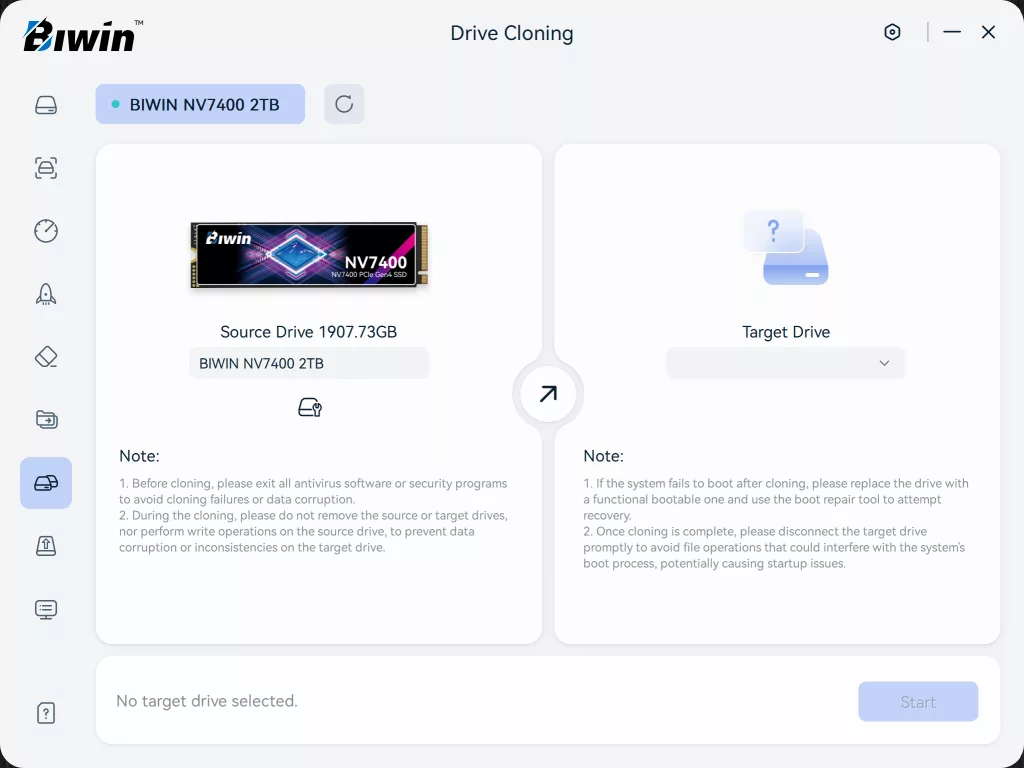
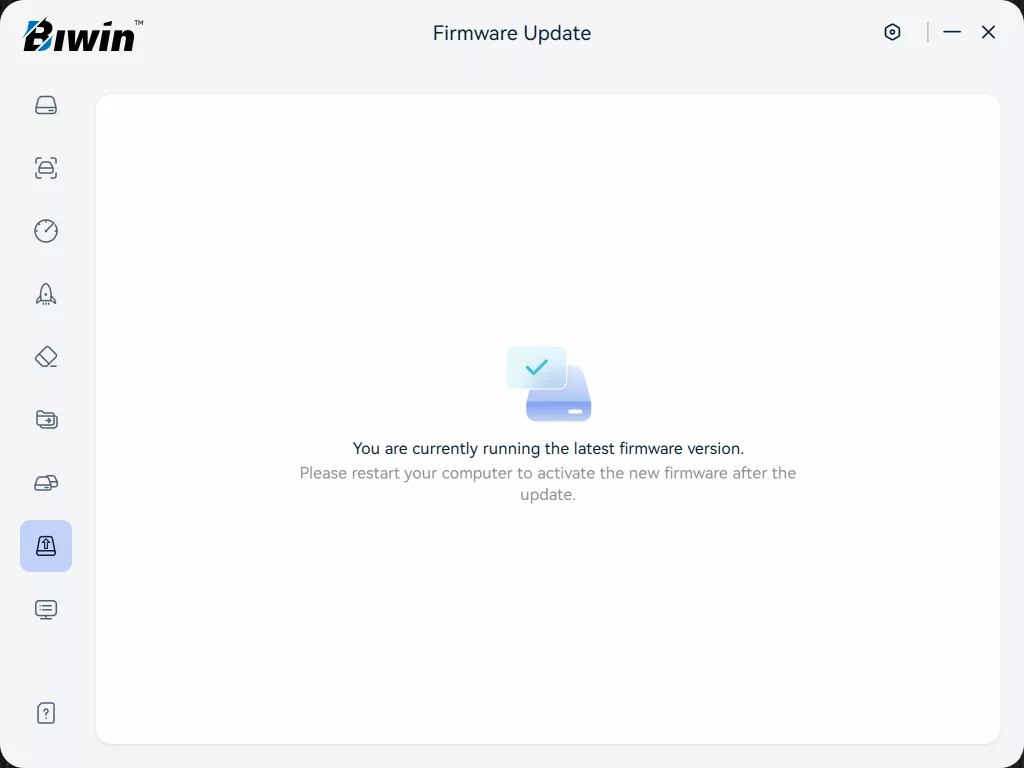
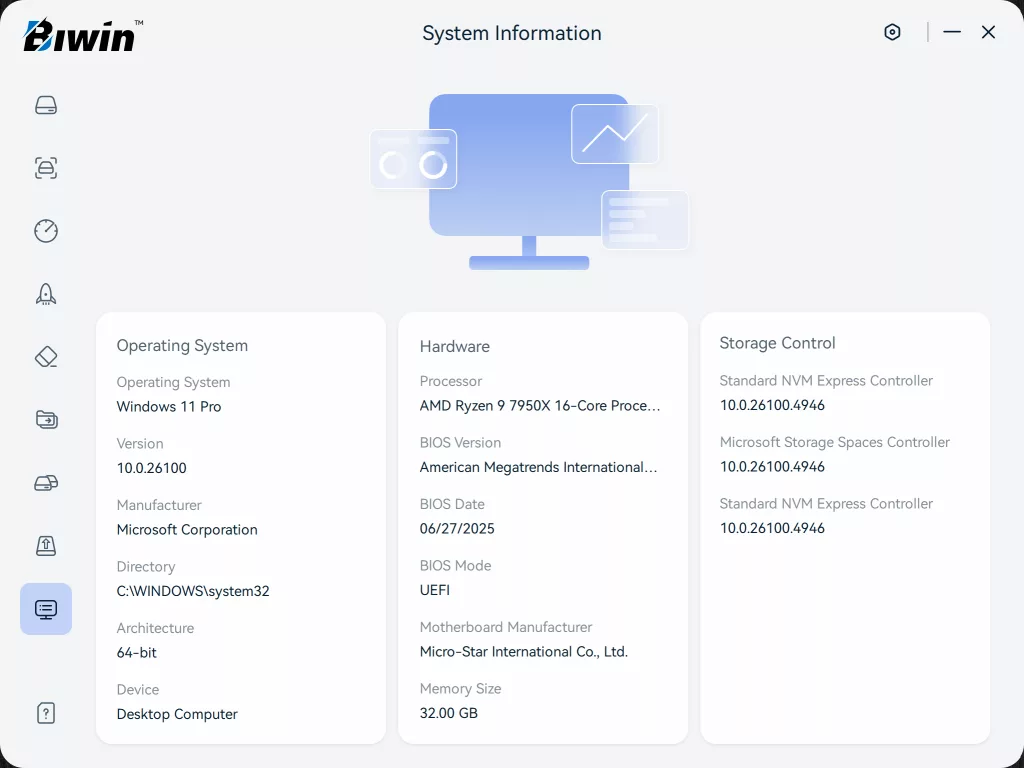
Biwin offers a very robust SSD software management package for its SSDs, called Biwin Intelligence. We found this software to be both pleasing to the eye with an appealing UI, intuitive, and also feature-packed, which we like to see. Above, the first tab shows you drive health and temperature, as well as space used visually, and also shows what the SSD looks like with all relevant information about it. On the next tab is a scan function to scan for errors, both as a quick scan and a deep scan. There is also a performance test tab to test the performance and track it over time.
There are also options to improve performance with drive settings and OS settings, including TRIM NTFS and ReFS, secure erase reset, resetting the drive, and a full-function standard erase and full secure erase function. Biwin Intelligence also has a full data migration from drive to drive built in, and a full drive cloning feature built in from drive to drive. There is also a firmware update feature where it will check for updates and applies new ones. Overall, these levels of software features are robust, feature-packed, and great to see.
Final Points
The Biwin Black Opal NV7400 2TB PCIe Gen4 M.2 NVMe SSD is our first look at a made-by-Biwin model SSD, direct out of Biwin’s Black Opal series. The Biwin Black Opal NV7400 series is Biwin’s flagship PCIe Gen4 SSD, and with this model, Biwin has chosen the MAXIO MAP1602A-F3C controller, which is more geared toward entry-level to mainstream pricing.
The MAXIO MAP1602 controller is a DRAM-less controller, so the Biwin Black Opal NV7400 relies on HMB and NVMe 2.0. Thankfully, Biwin used the F3C variant of the controller, so you get full NVMe 2.0 support. The use of Micron B58R TLC 3D NAND flash is also common with this controller. One area, though, where Biwin steps up to the plate is the endurance, the 1TB has 1000 TBW, 2TB at 2000 TBW, and 4TB at 4000TBW, which is above average, and starts the Biwin Black Opal NV7400 off on the right foot in our books for longevity and stability.
In our testing, the Biwin Black Opal NV7400 2TB SSD performed where it counts for this gaming-oriented SSD, in game testing. In 3DMark’s Storage benchmark, for example, it performed nearer to the top of the charts, well above average for performance, right next to the fastest SSDs. This was also continued in the game loading time testing, where it literally offered the fastest load times using DirectStorage-supported games; NVMe 2.0 might be helping here. In the games that do not use DirectStorage, it was still no slouch, coming in third in Starfield and fourth in Final Fantasy benchmark. It had impressive load times for games, and definitely works very fast for DirectStorage-supported games.
The Biwin Black Opal NV7400 2TB SSD was also fast in file copy, making easy use of our timed testing of file copy for both 50GB and Steam library folder copying. It was above average in performance in this testing. In our sequential and random bandwidth testing, the Biwin Black Opal NV7400 2TB SSD hit its mark in sequential and exceeded it in sequential write performance. It was also strong in RND4K Q32T16, but it did have one weakness, RND4K Q1T1. In that testing, it had a much lower read performance metric and the lowest write performance metric. It also had relatively high latency and access times, which resulted in lower PCMark 10 performance for full and quick benchmarks. For small workloads and frequently accessed data, an SSD with a DRAM cache is preferred, but for gaming, this is just fine.
The Biwin Black Opal NV7400 2TB PCIe Gen4 M.2 NVMe SSD does great for what it is designed to do: provide an excellent level of performance for a DIY enthusiast gaming build, consumer devices, or mobility. Biwin claims high durability and rigorous testing to guarantee data safety, and we see that carried through with the endurance ratings, and also an impressive feature suite with Biwin Intelligence. The Biwin Black Opal NV7400 is true to Biwin’s Black Opal gaming-oriented brand and will make a great value-oriented SSD for your gaming build at the right price.


